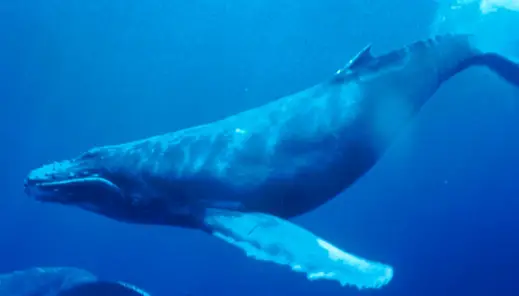Janet Neilson, a dedicated wildlife biologist, has been closely monitoring the migration patterns of humpback whales in Alaska. Working with the National Park Service’s whale monitoring program, Neilson tracks the annual journey of these whales from Hawaii to their feeding grounds in Glacier Bay and Icy Strait. From 2014 to 2018, alongside Chris Gabriele, a seasoned researcher of the program, she observed a troubling trend: the disappearance of whales across various age groups.
A recent study, to which Neilson contributed as one of 75 co-authors, has uncovered a significant loss in the North Pacific humpback whale population. Nearly 7,000 of these majestic creatures, representing a 20% decrease from their peak population of over 33,000, are believed to have perished between 2012 and 2021. Researchers attribute this mass disappearance to starvation caused by a record-setting marine heatwave, dubbed “the blob,” which wreaked havoc on marine ecosystems from 2014 to 2016.
Ted Cheeseman, a naturalist and the founder of Happy Whale—a photo database leveraging artificial intelligence to identify individual whales by their unique tail patterns—played a pivotal role in bringing researchers together for this study. Initially aimed at conducting a simple population count, the project shifted focus when the data revealed a stark decline in humpback numbers during the period of “the blob.” This marine heatwave led to the death of fish and seabirds, affecting over 30% of Alaska’s humpbacks.
The study highlights the ongoing challenges of climate change in marine conservation. Cheeseman, reflecting on his earlier days as a tour guide in Antarctica, recalls the scarcity of humpbacks, a time when commercial whaling nearly drove the species to extinction. Despite significant recovery and the removal of humpbacks from the endangered species list in 2016, the whales, particularly around Juneau, have been observed to be increasingly emaciated. Heidi Pearson, a researcher at the University of Alaska Southeast, notes that while humpbacks are known for their adaptability and flexible diet, the severe environmental changes pose unprecedented threats to their survival.

